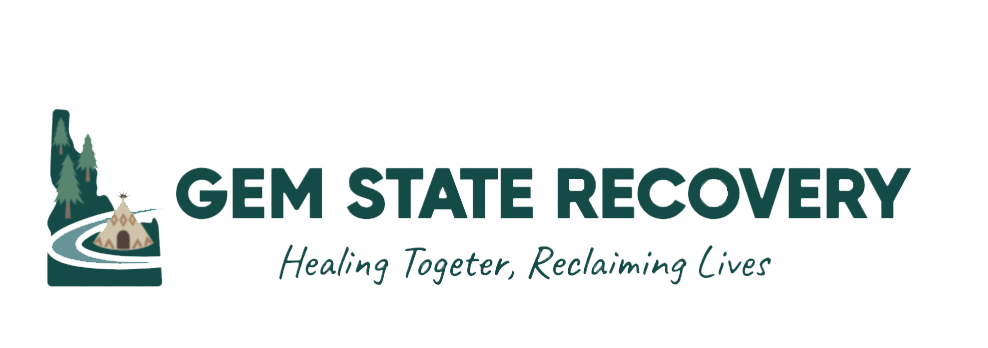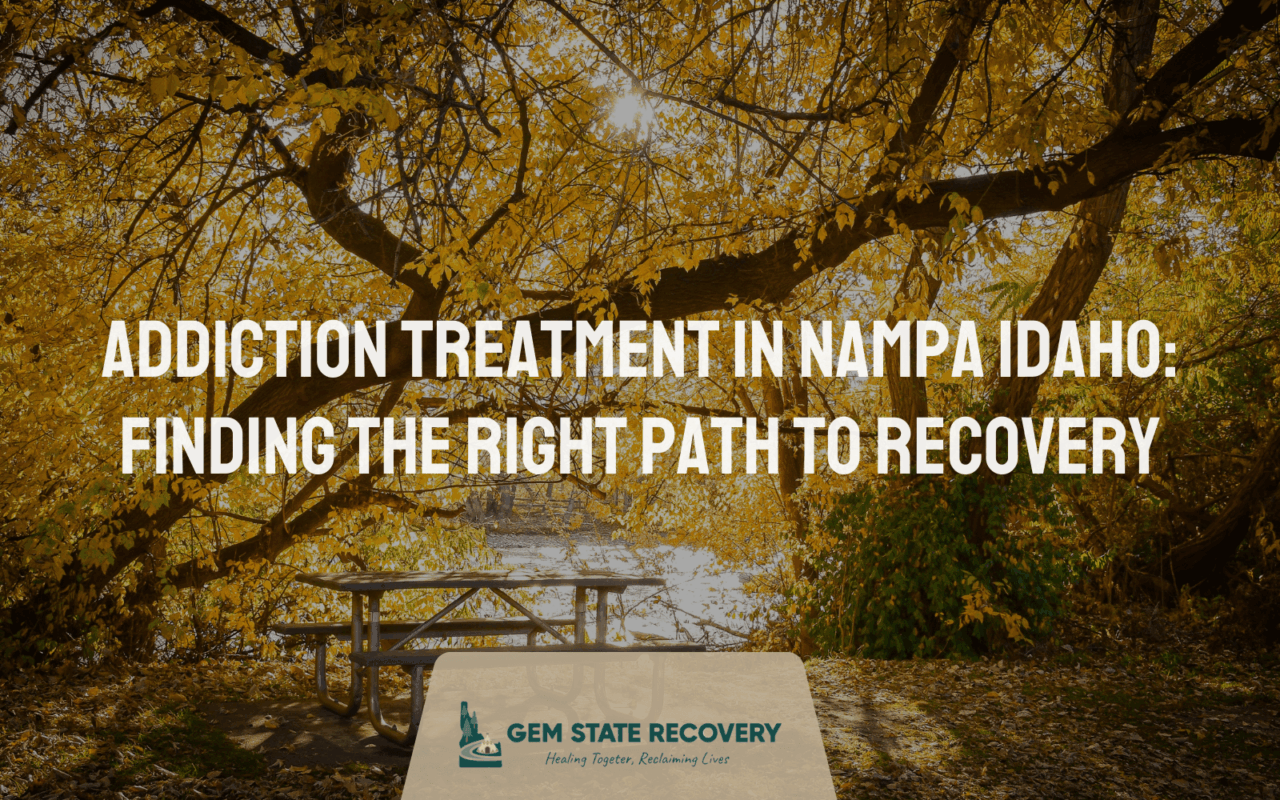When facing the challenging journey of overcoming addiction, finding comprehensive and compassionate care becomes paramount to successful recovery. Addiction treatment Nampa Idaho offers hope and healing to individuals and families struggling with substance abuse disorders. Located in the heart of the Treasure Valley, Nampa provides access to world-class treatment facilities that combine evidence-based therapies with personalized care approaches, creating an environment where lasting recovery becomes possible. The landscape of addiction treatment in Nampa Idaho has evolved significantly over the past decade, with treatment centers now offering a full spectrum of services designed to address the complex nature of addiction.
Addiction Treatment in Nampa Idaho
From the initial crisis intervention to long-term recovery support, these facilities understand that addiction affects every aspect of a person’s life – physical, emotional, psychological, and social. This comprehensive understanding drives the development of treatment programs that address not just the symptoms of addiction, but the underlying causes and contributing factors that led to substance abuse. Recovery is not a one-size-fits-all journey, which is why addiction treatment in Nampa Idaho emphasizes individualized treatment planning.
Each person entering treatment brings their own unique history, trauma, mental health considerations, and personal circumstances that must be carefully evaluated and addressed. Treatment teams work collaboratively with clients to develop personalized recovery plans that incorporate multiple therapeutic modalities, ensuring that each individual receives the specific care they need to achieve sustainable sobriety.
Comprehensive Intervention and Assessment Services
The journey to recovery often begins with professional intervention assistance, a crucial service offered throughout addiction treatment Nampa Idaho facilities. Many individuals struggling with addiction are unable to recognize the severity of their situation or feel overwhelmed by the prospect of seeking help. Professional intervention services bridge this gap by providing families and loved ones with the tools and support needed to encourage their family member to enter treatment. Professional intervention assistance includes several key components that make the process more effective and compassionate. Certified intervention specialists work closely with families to develop a structured approach that maximizes the chances of a positive outcome.
These specialists provide pre-intervention counseling to help family members understand addiction as a disease, prepare emotionally for the intervention process, and learn effective communication strategies. During the actual intervention, specialists facilitate the conversation, ensuring that it remains focused, loving, and productive rather than accusatory or confrontational. Post-intervention support continues regardless of the outcome, with specialists helping families navigate next steps whether the individual agrees to treatment immediately or needs additional time and support. The intervention process also includes comprehensive assessment services that begin the moment an individual expresses willingness to seek help.
Treatment facilities offering addiction treatment Nampa Idaho conduct thorough medical, psychological, and social evaluations to determine the most appropriate level of care. These assessments examine factors such as the severity and duration of substance use, co-occurring mental health disorders, medical complications, social support systems, previous treatment history, and personal motivation for change. This detailed evaluation process ensures that individuals are placed in the most appropriate treatment setting from the beginning, maximizing their chances of successful recovery.
Medical Detoxification and Stabilization Programs
Safe and comfortable detoxification represents a critical first step in the recovery process for many individuals seeking addiction treatment Nampa Idaho. Detox programs provide 24-hour medical supervision and support during the withdrawal process, ensuring that individuals can safely eliminate substances from their bodies while managing withdrawal symptoms effectively. Medical detoxification is particularly important for individuals who have developed physical dependence on alcohol, opioids, benzodiazepines, or other substances that can produce dangerous withdrawal symptoms.
Comprehensive detox programs offer multiple levels of support to ensure client safety and comfort throughout the withdrawal process. Medical monitoring includes continuous assessment of vital signs, neurological function, and overall physical stability by trained nursing staff and physicians specializing in addiction medicine. Medication management utilizes FDA-approved medications to reduce withdrawal symptoms, prevent complications, and increase comfort during detoxification. Nutritional support addresses the physical depletion that often accompanies chronic substance use, helping restore proper nutrition and hydration. Emotional support provides counseling and therapeutic interventions to help individuals cope with the psychological aspects of early recovery.
The detox experience within addiction treatment Nampa Idaho facilities emphasizes dignity, respect, and hope throughout the process. Staff members understand that detoxification can be a frightening and vulnerable time for individuals and their families. Programs focus on creating a supportive, non-judgmental environment where individuals feel safe to begin their recovery journey. This includes providing education about what to expect during detox, involving family members in appropriate ways, and beginning to introduce individuals to the recovery resources and support systems that will be available throughout their treatment experience.
Residential and Outpatient Treatment Options
Addiction treatment Nampa Idaho facilities offer both inpatient and outpatient programs designed to meet individuals at their specific level of need and life circumstances. Inpatient programs provide the highest level of care, with individuals residing at the treatment facility for an extended period while receiving intensive therapeutic services. These programs are typically recommended for individuals with severe addiction, significant medical or psychiatric complications, limited social support, or previous unsuccessful attempts at outpatient treatment. Inpatient programs offer comprehensive services within a structured, supportive environment that removes individuals from triggers and stressors that may contribute to continued substance use.
Residential treatment includes 24-hour nursing care and medical supervision to address any ongoing health complications related to substance use. Individual therapy sessions occur multiple times per week with licensed addiction counselors and therapists who specialize in evidence-based treatment approaches. Group therapy sessions provide opportunities to connect with peers, share experiences, and learn from others who are navigating similar challenges. Educational programming covers topics such as addiction science, recovery skills, healthy coping strategies, and relapse prevention techniques. Recreational and wellness activities promote physical health, stress reduction, and the development of healthy leisure activities. Family involvement includes education, counseling, and support services to help repair relationships and build strong recovery support systems.
Outpatient programs within addiction treatment Nampa Idaho provide flexibility for individuals who need to maintain work, school, or family responsibilities while receiving treatment. These programs vary in intensity, from intensive outpatient programs that require attendance several times per week to traditional outpatient counseling that may involve weekly or bi-weekly sessions. Outpatient treatment includes many of the same therapeutic components as residential programs but allows individuals to practice recovery skills in their natural environment while maintaining access to professional support and guidance.
Specialized Partial Hospitalization Programming
Partial hospitalization programs represent an important intermediate level of care within addiction treatment Nampa Idaho treatment continuum. These programs bridge the gap between residential treatment and traditional outpatient care, providing intensive therapeutic services during the day while allowing individuals to return home in the evenings. This level of care is particularly beneficial for individuals who need more support than traditional outpatient treatment provides but do not require the 24-hour supervision of residential care. Partial hospitalization programs typically operate five to seven days per week, with individuals attending programming for six to eight hours daily. This intensive schedule allows for comprehensive therapeutic intervention while maintaining some connection to home and community life.
The structure includes individual therapy sessions with primary therapists who develop and monitor treatment plans, coordinate care with other providers, and provide ongoing assessment of progress and needs. Group therapy sessions focus on specific topics such as relapse prevention, trauma processing, family dynamics, and skill development. Psychiatric services are available for individuals with co-occurring mental health disorders, including medication management and specialized therapeutic interventions.
Case management services help coordinate external resources such as housing, employment assistance, legal support, and healthcare services. Family therapy and education sessions work to rebuild relationships and create supportive home environments that promote continued recovery. The flexibility of partial hospitalization within addiction treatment Nampa Idaho allows individuals to gradually transition back to independent living while maintaining access to intensive therapeutic support. This approach helps individuals practice recovery skills in real-world situations while having immediate access to professional guidance and support when challenges arise.

Evidence-Based Therapeutic Modalities
Modern addiction treatment Nampa Idaho programs utilize a variety of evidence-based therapeutic approaches that have been scientifically proven effective in treating addiction and co-occurring disorders. Cognitive Behavioral Therapy (CBT) represents one of the most widely used and researched therapeutic modalities in addiction treatment, focusing on identifying and changing thought patterns and behaviors that contribute to substance use. CBT helps individuals develop practical skills for managing triggers, cravings, and high-risk situations that might lead to relapse.
Therapists
Therapists work with clients to identify negative thought patterns and cognitive distortions that contribute to addictive behaviors, teaching them to recognize these patterns and develop healthier ways of thinking. Behavioral interventions focus on developing new coping skills, problem-solving strategies, and healthy lifestyle changes that support long-term recovery. CBT also addresses co-occurring mental health issues such as depression, anxiety, and trauma that often contribute to substance abuse problems. Dialectical Behavior Therapy (DBT) offers another powerful therapeutic approach particularly effective for individuals with co-occurring mental health disorders or those who struggle with emotional regulation. DBT combines cognitive behavioral techniques with mindfulness practices and distress tolerance skills, helping individuals develop healthier ways of managing intense emotions and interpersonal relationships.
The four core modules of DBT include mindfulness skills that help individuals stay present and aware rather than being overwhelmed by emotions or cravings, distress tolerance skills that provide healthy alternatives to substance use when facing difficult emotions or situations, emotion regulation techniques that help individuals understand, experience, and manage emotions more effectively, and interpersonal effectiveness skills that improve communication and relationship-building abilities. Eye Movement Desensitization and Reprocessing (EMDR) represents a specialized therapeutic approach particularly effective for individuals whose addiction is connected to trauma experiences. Many individuals struggling with substance abuse have histories of physical, emotional, or sexual trauma that contribute to their addiction. EMDR helps process traumatic memories and reduce their emotional impact, making it easier for individuals to focus on recovery without being overwhelmed by trauma symptoms.
Individual and Group Therapy Approaches
Addiction treatment Nampa Idaho programs recognize that recovery happens through both individual work and community connection, which is why comprehensive treatment includes both individual and group therapy approaches. Individual therapy provides a safe, confidential space where clients can explore personal issues, trauma history, family dynamics, and other factors that contribute to their addiction with dedicated therapeutic support. Individual therapy sessions are typically conducted by licensed clinical social workers, licensed professional counselors, or psychologists who specialize in addiction treatment. These sessions focus on developing a strong therapeutic relationship that provides the foundation for meaningful change and growth.
Therapists conduct comprehensive assessments to understand each client’s unique background, strengths, challenges, and treatment goals. Treatment planning involves collaborating with clients to establish realistic, achievable goals and developing strategies for reaching those goals. Processing therapy helps clients work through difficult emotions, traumatic experiences, and painful memories that may contribute to substance use. Skill development focuses on teaching practical coping strategies, stress management techniques, and problem-solving skills that support long-term recovery. Relapse prevention planning involves identifying personal triggers and high-risk situations while developing specific strategies for managing these challenges without returning to substance use.
Group therapy represents an equally important component of treatment, providing opportunities for peer support, shared learning, and community building that are essential for sustainable recovery. Groups are typically led by licensed therapists and may focus on specific topics such as relapse prevention, trauma processing, family relationships, or general recovery support. Group therapy helps individuals realize they are not alone in their struggles while providing opportunities to learn from others who have faced similar challenges. The group setting allows individuals to practice new communication skills, receive feedback from peers, and develop meaningful relationships that can provide ongoing support throughout the recovery process.
Life Skills Development and Practical Recovery Support
Successful long-term recovery requires more than addressing the physical and psychological aspects of addiction – it also involves developing practical life skills that support independent, healthy living. Addiction treatment Nampa Idaho programs include comprehensive life skills training that addresses the practical challenges individuals may face as they rebuild their lives in recovery. Life skills programming covers a wide range of practical areas essential for successful community reintegration. Financial management education helps individuals develop budgeting skills, understand credit and debt management, and plan for long-term financial stability.
Employment readiness services include resume writing assistance, interview preparation, job search strategies, and workplace communication skills. Educational planning helps individuals explore options for completing high school equivalency programs, vocational training, or college education. Housing assistance provides information about sober living options, rental processes, and maintaining stable housing. Transportation planning addresses practical needs for getting to work, appointments, and recovery meetings. Time management and organizational skills help individuals structure their days productively and maintain important commitments and responsibilities.
Health and wellness education represents another crucial component of life skills development, teaching individuals how to maintain physical and mental health throughout recovery. This includes nutrition education and meal planning skills that address the physical depletion often associated with chronic substance use. Exercise and fitness programming helps individuals develop healthy ways to manage stress, improve mood, and maintain physical health. Sleep hygiene education addresses the sleep disruptions common in early recovery and teaches strategies for establishing healthy sleep patterns. Stress management techniques provide alternatives to substance use for coping with life’s inevitable challenges and pressures.
Comprehensive Relapse Prevention Strategies
Relapse prevention represents one of the most critical components of addiction treatment Nampa Idaho programming, recognizing that addiction is a chronic condition that requires ongoing management and support. Effective relapse prevention involves helping individuals identify their personal risk factors and developing specific strategies for managing these risks without returning to substance use. Comprehensive relapse prevention education begins with helping individuals understand addiction as a chronic medical condition similar to diabetes or hypertension – conditions that require ongoing management but can be successfully controlled with proper treatment and lifestyle changes. This understanding helps reduce shame and self-blame while emphasizing the importance of continued engagement in recovery activities and support systems. Individuals learn to identify their personal triggers and high-risk situations, which may include specific people, places, emotions, or circumstances that increase their vulnerability to relapse.
Common Triggers
Common triggers include exposure to substances or substance use environments, high stress situations, interpersonal conflicts, loneliness or isolation, overconfidence in recovery, complacency about treatment engagement, physical illness or pain, and major life changes or transitions. Developing coping strategies for managing identified triggers represents a crucial component of relapse prevention planning. These strategies include immediate response techniques such as calling a sponsor or therapist, attending a recovery meeting, practicing mindfulness or meditation, engaging in physical exercise, and removing themselves from high-risk situations. Long-term prevention strategies focus on maintaining engagement with recovery support systems, continuing therapy or counseling as needed, maintaining healthy lifestyle practices, building and maintaining meaningful relationships, pursuing educational or career goals, and regularly reassessing and updating their recovery plan.
Warning sign recognition helps individuals and their support systems identify early indicators that someone may be at increased risk for relapse. These warning signs may include decreased engagement with recovery activities, isolation from support systems, increased stress or emotional instability, romanticizing past substance use, decreased attention to self-care, and changes in thinking patterns or decision-making. When warning signs are identified early, individuals can take proactive steps to address underlying issues and strengthen their recovery before a relapse occurs.
Alumni Programs and Long-Term Recovery Support
Addiction treatment Nampa Idaho facilities understand that recovery is a lifelong journey that requires ongoing support and community connection. Alumni programs provide continued engagement opportunities for individuals who have completed primary treatment, helping them maintain recovery motivation while giving back to others who are beginning their recovery journey. Alumni programs offer multiple types of ongoing support and engagement opportunities designed to meet individuals at various stages of their recovery journey. Regular alumni meetings provide opportunities for graduates to maintain connections with treatment staff and fellow alumni while sharing experiences, challenges, and successes in recovery.
These meetings often include educational presentations on relevant recovery topics, social activities that promote healthy fellowship, and opportunities for more experienced alumni to mentor newer graduates. Alumni newsletters and communication help maintain connections with the broader recovery community while sharing inspiring stories of continued growth and success. Volunteer opportunities allow alumni to give back to the recovery community by sharing their experiences with current clients, assisting with program activities, participating in community outreach events, and supporting fundraising efforts for treatment scholarships or program enhancements. Many alumni find that helping others in early recovery strengthens their own commitment to sobriety while providing a sense of purpose and meaning that enhances their overall quality of life. Continuing education and skill development opportunities help alumni continue growing and developing throughout their recovery journey.
Reach Out Today
This may include workshops on advanced recovery topics, career development seminars, financial planning education, relationship and communication skills training, and personal development activities. These ongoing learning opportunities help individuals continue building the skills and knowledge needed for long-term success while maintaining engagement with positive, recovery-focused activities and relationships. The comprehensive approach to addiction treatment Nampa Idaho recognizes that successful recovery requires addressing all aspects of an individual’s life while providing the tools, skills, and support systems needed for long-term success. By combining evidence-based treatment modalities with compassionate, individualized care and ongoing support systems, these programs create an environment where lasting recovery becomes not just possible, but probable.
Don’t wait any longer and reach out to us today for assistance by calling 1 (208) 314-3107 or visit our website. For individuals and families affected by addiction, these comprehensive treatment options represent hope, healing, and the opportunity to reclaim a life of purpose, meaning, and fulfillment.





